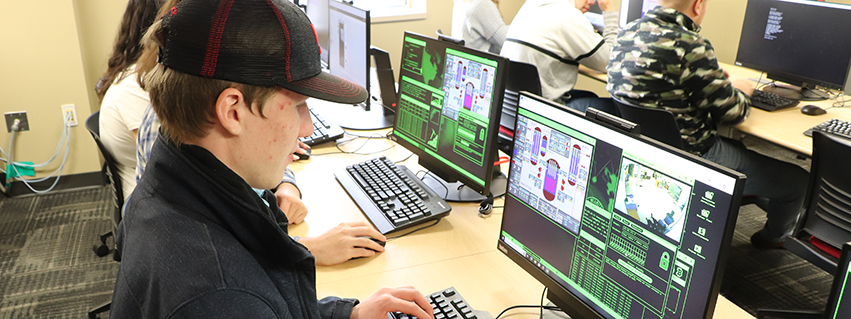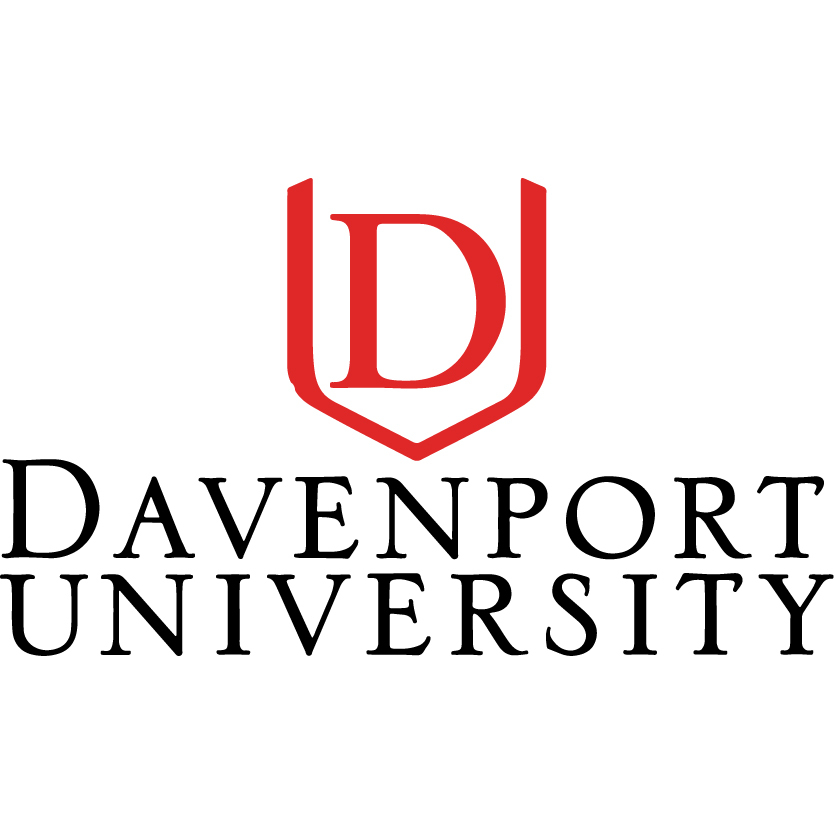
Computer Security
This program is offered to juniors or seniors. It provides an introduction to computers, their role in managing business information systems, their influence on society and their use in personal productivity.
Students will gain skills to diagnose and correct problems that computer users encounter. The student receives practical hands-on experience with computer hardware and software while developing their communication skills and professionalism. This course includes two current certification exams that are required to receive the CompTIA A+ Certification. In addition, the student in this course learns the fundamentals of Local Area Networks (LANs) and related topics. Students will also have communication standards introduced.
Program Overview
Course Information
Program Location
Davenport University (Shuttle Available)
Session Offered
AM
Average Lecture Days/Week
2-3 days
Average Lab Days/Week
2-3 days
Homework
Weekly
Required Reading
- College level textbooks
- 25 or more pages per week
Success Indicators
- Strong problem solving skills
- Likes to work with computers and technology
- Highly organized
- Effective in a team setting and individually
College Credits - 12
- CITF 110 - Introduction to Computer Information Systems
- CITN 120 - Networking Concepts
- CITS 125 - Computer Support: A+ Certification Prep
Academic Rigor
4 out of 5
Capital Region Technical Early College
Students enrolled in this program may choose to participate in the Capital Region Technical Early College program (CRTEC). This is a high school to college program where students start in grade 11 and leave in grade 13 with a college degree or certification. This program gives students relevant career related experience.
Course Outcomes
Students learning outcomes include, but are not limited to:
- Students exposed to Stack overflow
- Virtualization
- Identify the parts of a personal computer (PC)
- Install, replace, and upgrade common PC hardware components
- Define and explain the functions and interactions of all PC subsystems
- Tear down and rebuild a complete PC
- Install and troubleshoot PC peripherals such as printers and modems
- Install several common Operating systems and use common tools for desktop system administration and problem diagnosis
- Identify safety and security issues
- Distinguish between wide area and local area networks, and describe characteristics of each
- Describe common network components and how they connect to and communicate with each other
- Describe the various ways data is represented and organized into packets or frames for transmission from one location to another
- Discuss issues related to securing networks
- Describe uses of networks in business
- Explain the interrelationship between computer hardware and software development and society in an information age
- Describe the various classes of computers, the hardware which they utilize, and types of applications for which they are developed
Certifications
- Red Hat Certification
- Chief Information Security Officer (CISO)
- International Software Testing Qualifications Board (ISTQB) Certification
- Computing Technology Industry Association (CompTIA) A+
Student Leadership
Students have the opportunity for leadership, competition, and community service through membership in SkillsUSA.
Career Outlook
Careers
- Computer Systems Engineer/Architect
- Computer System Analyst
- Support Specialist
- Software Developer
- Computer User Support
Median Wage
- Computer Systems Engineer/Architect: $50.44 Hourly, $104,920 Annually
- Computer System Analyst: $49.90 Hourly, $103,800 Annually
- Support Specialist: $34.39 Hourly, $71,530 Annually
- Software Developer: $63.59 Hourly, $132,270 Annually
- Computer User Support: $28.48 Hourly, $59,240 Annually
Employment Outlook (Average)
- Computer Systems Engineer/Architect: 9% or higher
- Computer System Analyst: 9% or higher
- Support Specialist: 5-8%
- Software Developer: 9% or higher
- Computer User Support: 5-8%

